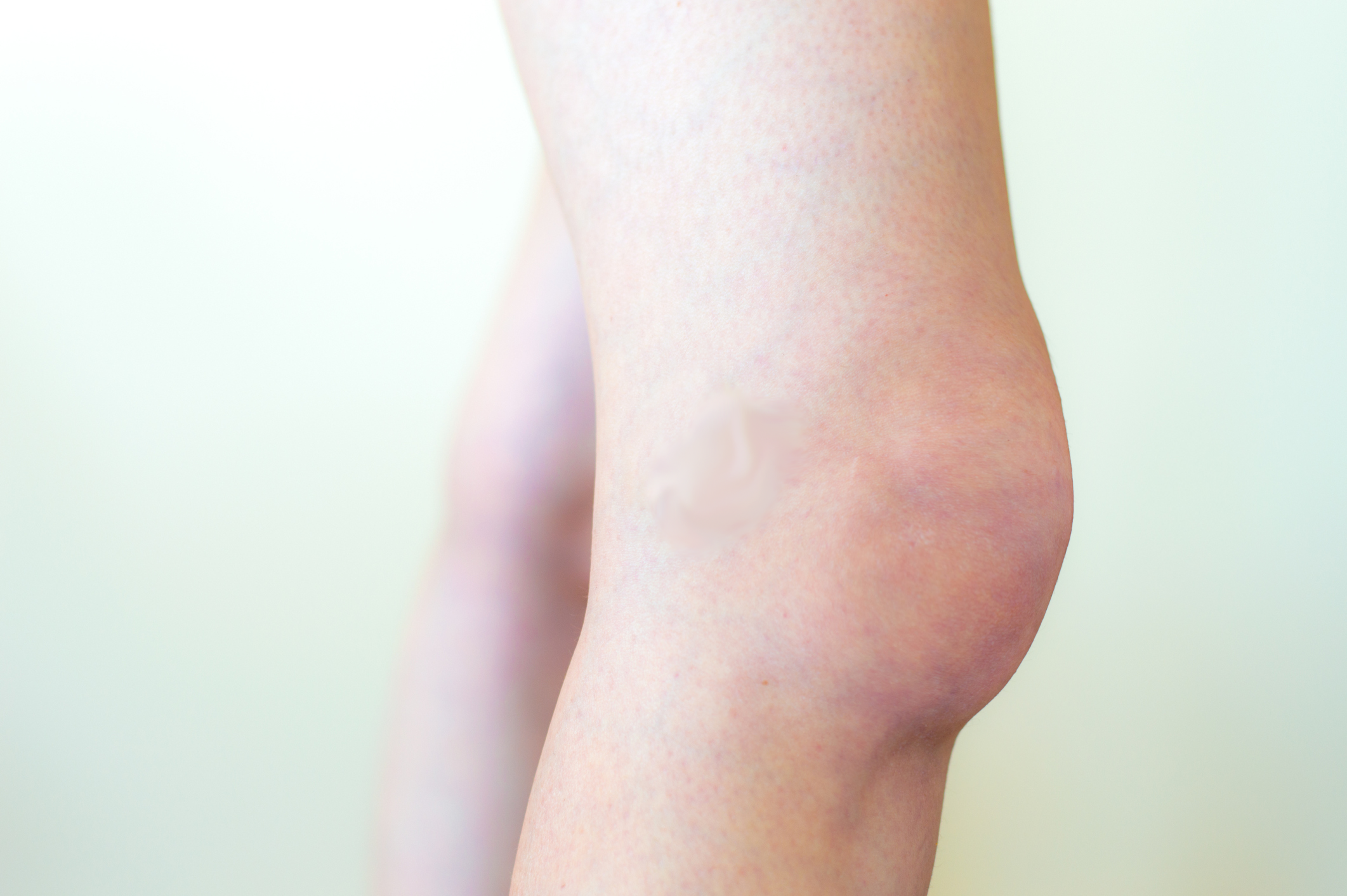As a specialist doctor, I have treated countless patients who walk into my clinic with a swollen knee, unsure whether to worry or wait for it to improve on its own. While knee swelling can often be a minor issue that resolves with rest and home care, in some cases, it can indicate a serious underlying problem.
Based on my years of experience, I want to share my insights into when a swollen knee might be dangerous, the potential causes, and what steps you should take if you experience this condition.
Why Does a Knee Swell?

A swollen knee occurs when excess fluid builds up inside or around the joint. This can happen for several reasons, ranging from minor injuries to severe medical conditions. Some of the most common causes include:
1. Injury-Related Swelling
Injuries are one of the leading causes of knee swelling. The knee is a complex joint that consists of bones, ligaments, tendons, and cartilage. Any damage to these structures can result in swelling. Some common injuries that lead to knee swelling include:
- Ligament Tears: The ACL (anterior cruciate ligament) and MCL (medial collateral ligament) are commonly injured in sports or accidents. These injuries cause rapid swelling and require medical evaluation.
- Meniscus Tears: The meniscus acts as a cushion between the knee bones. A tear can lead to swelling, pain, and difficulty in movement.
- Fractures: A broken kneecap or other bone fractures in the knee joint can cause immediate and severe swelling.
2. Arthritis and Chronic Conditions
In my practice, I often see patients with arthritis who experience recurrent knee swelling. The most common types of arthritis that affect the knee include:
- Osteoarthritis: This is the wear-and-tear arthritis that develops over time and leads to chronic knee swelling.
- Rheumatoid Arthritis (RA): An autoimmune condition that causes inflammation and swelling in multiple joints, including the knees.
- Gout and Pseudogout: These conditions result from the buildup of crystals in the joint, leading to sudden, painful swelling.
3. Infections – A Serious Cause of Swelling
One of the most dangerous causes of knee swelling is an infection, known as septic arthritis. This condition requires urgent medical treatment, as it can lead to permanent joint damage if left untreated.
Signs that your swollen knee might be due to an infection include:
- Intense pain and redness
- Fever and chills
- Warmth around the joint
I once treated a patient who had ignored his swollen knee for a week, assuming it was due to arthritis. When he finally sought help, it turned out to be a bacterial infection requiring immediate hospitalization and IV antibiotics. Had he delayed further, he could have suffered permanent damage or even sepsis.
4. Bursitis – Inflammation of the Knee Bursa
The knee contains small fluid-filled sacs called bursae, which reduce friction between bones and soft tissues. When these sacs become inflamed due to repetitive motion or pressure, it leads to bursitis, causing swelling and tenderness. I often see this condition in athletes, construction workers, and people who kneel frequently.
When Should You Worry About a Swollen Knee?
While mild knee swelling often resolves with rest, there are certain signs that indicate a need for medical attention. You should see a doctor if:
- The swelling appears suddenly and is severe
- The knee feels hot and red (a possible sign of infection)
- You have fever and chills
- The swelling persists for more than a few days
- You are unable to bear weight on your leg
- The knee is deformed or out of place
A patient once came to me after ignoring his swollen knee for a month. By the time he arrived, he had developed a significant limp, and his X-rays showed severe joint damage. If he had sought treatment earlier, we could have prevented the worsening condition.
Home Remedies for a Swollen Knee
If your knee swelling is mild and not caused by a serious condition, there are several steps you can take at home to manage it:
RICE Method:
- Rest: Avoid putting too much weight on the knee.
- Ice: Apply an ice pack for 15–20 minutes every few hours.
- Compression: Use a knee brace or elastic bandage to reduce swelling.
- Elevation: Keep your leg raised to prevent fluid buildup.
Over-the-Counter Medications
Anti-inflammatory drugs like ibuprofen (Advil) or naproxen (Aleve) can help reduce pain and swelling.
Gentle Exercises
Once the initial swelling reduces, light stretching and strengthening exercises can help improve knee mobility. Physical therapy is beneficial for those recovering from injuries or arthritis.
Also Read: How Long To Ice Knee – A Detailed Overview!
Medical Treatment for a Swollen Knee
If home remedies do not improve your symptoms, medical treatments may be necessary. Depending on the cause, your doctor may recommend:
1. Draining the Excess Fluid
A procedure called aspiration can remove excess fluid from the knee to reduce swelling and relieve pain. I often perform this in my clinic for patients with chronic knee swelling due to arthritis or injury.
2. Corticosteroid Injections
For chronic inflammation, steroid injections can provide significant relief. I have seen many arthritis patients benefit from this treatment, allowing them to return to daily activities without pain.
3. Surgery
In severe cases, surgery may be necessary. Common procedures include:
- Arthroscopy: A minimally invasive procedure to repair damaged cartilage or remove loose fragments.
- Knee Replacement: For patients with severe arthritis, total knee replacement surgery may be the best option.
How to Prevent Knee Swelling?
While some causes of knee swelling are unavoidable, you can take steps to protect your knee health:
- Maintain a healthy weight to reduce pressure on the knees.
- Wear proper footwear to support knee alignment.
- Strengthen leg muscles with exercises like squats and leg raises.
- Warm up before exercise to prevent injuries.
- Avoid prolonged kneeling or use knee pads when necessary.
FAQ’s
1. Can a swollen knee go away on its own?
Yes, mild swelling caused by minor injuries or overuse can improve with rest, ice, compression, and elevation (RICE). However, persistent or severe swelling should be checked by a doctor.
2. When should I worry about a swollen knee?
Seek medical attention if the swelling is sudden, severe, accompanied by redness, warmth, fever, or if you can’t bear weight on your knee. These could indicate a serious condition like infection or a ligament tear.
3. What is the fastest way to reduce knee swelling?
Applying ice, keeping the leg elevated, using a compression bandage, and taking anti-inflammatory medication can help reduce swelling quickly.
4. Can arthritis cause knee swelling?
Yes, arthritis (both osteoarthritis and rheumatoid arthritis) is a common cause of knee swelling due to joint inflammation and fluid buildup.
5. How do doctors treat a swollen knee?
Treatment depends on the cause and may include draining excess fluid, steroid injections, physical therapy, medications, or in severe cases, surgery.
Final Thoughts
A swollen knee is not always dangerous, but it should never be ignored, especially if it persists, worsens, or is accompanied by other concerning symptoms. As a doctor, I always tell my patients: “Listen to your body. If something doesn’t feel right, don’t wait too long to seek help.” If you or someone you know is experiencing knee swelling, take the appropriate steps for diagnosis and treatment. Your knees are essential for mobility—take care of them, and they’ll take care of you!






